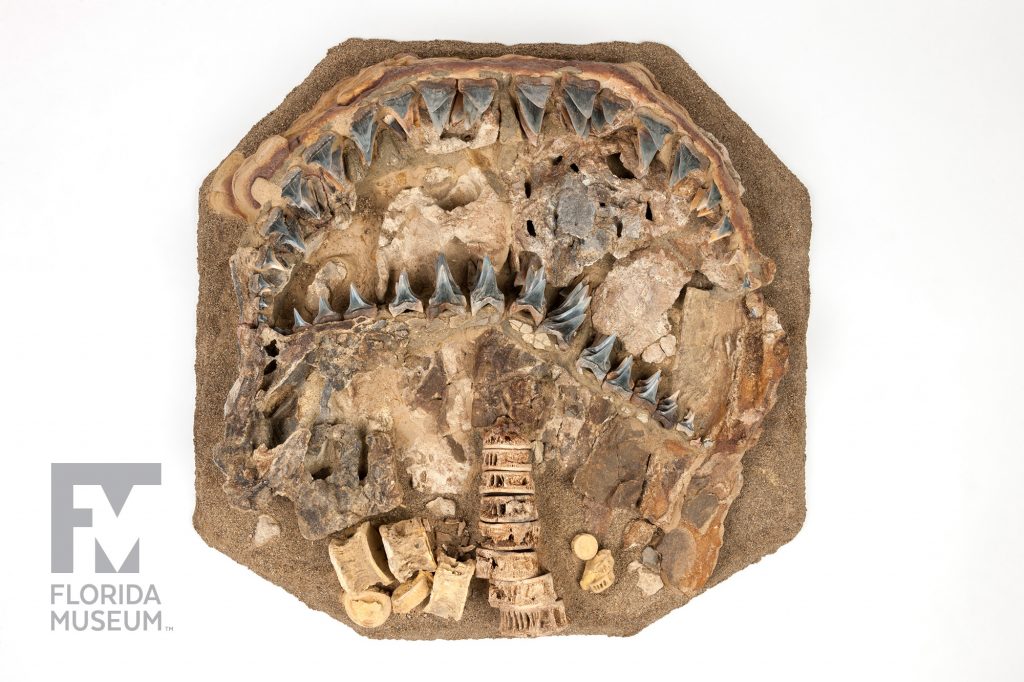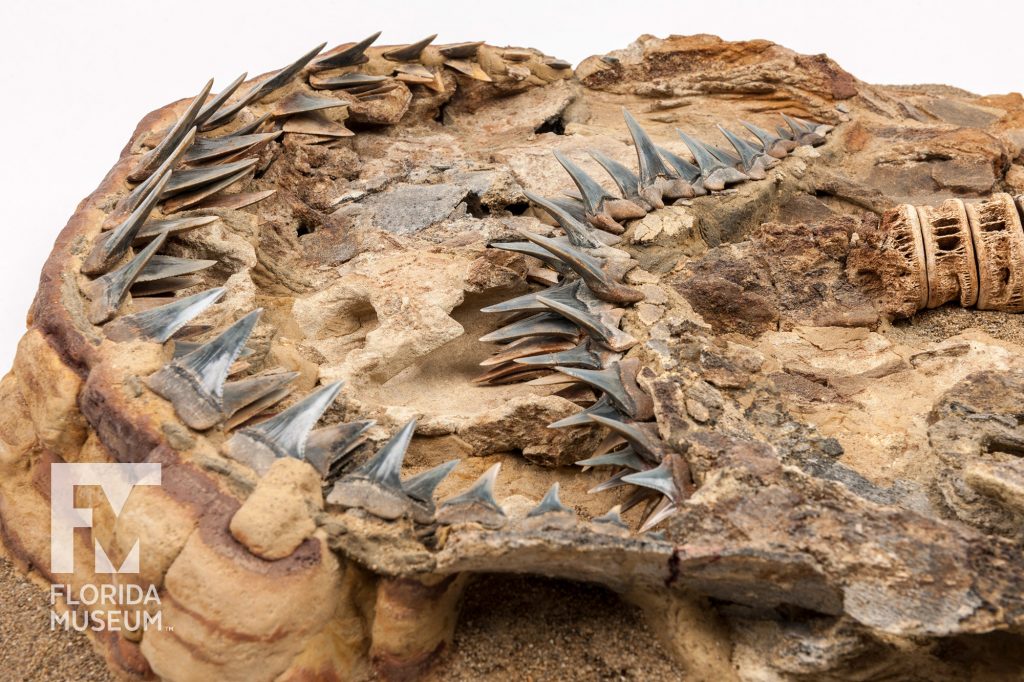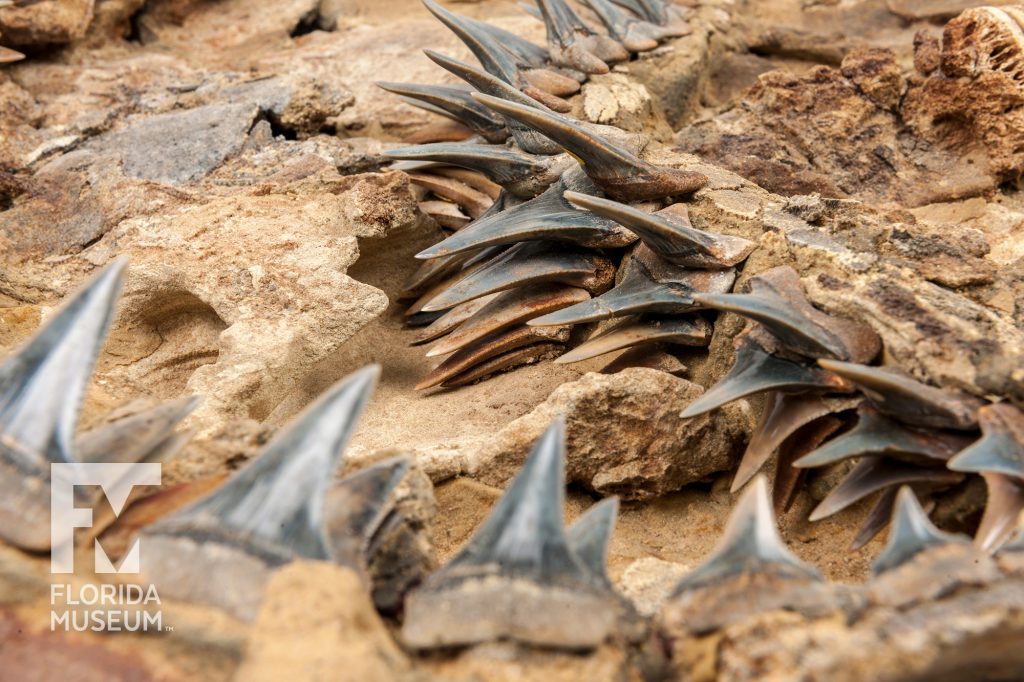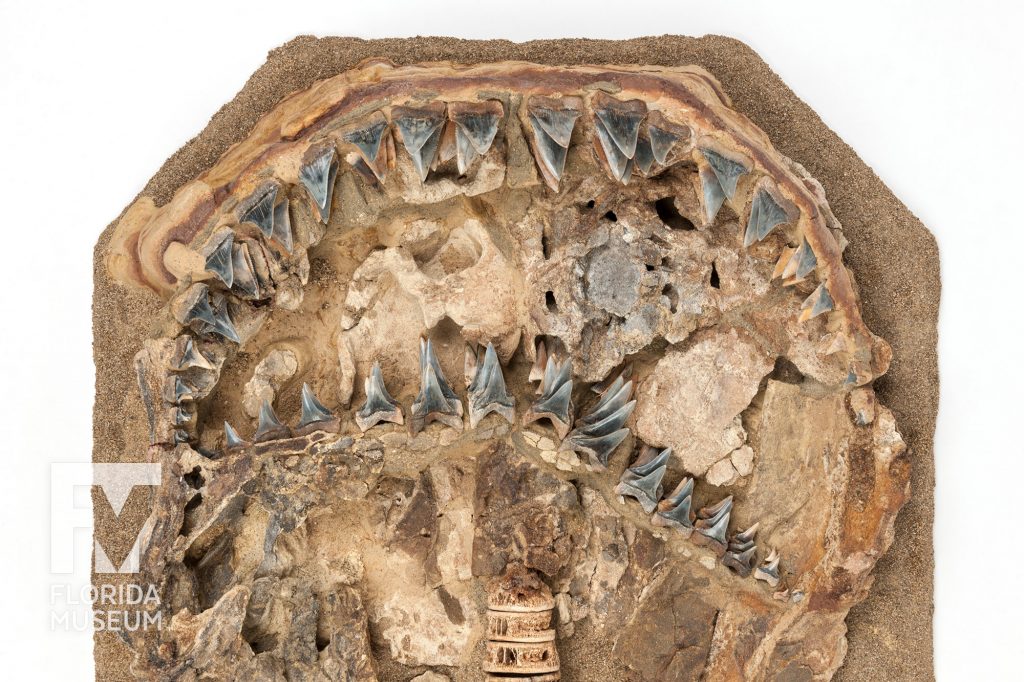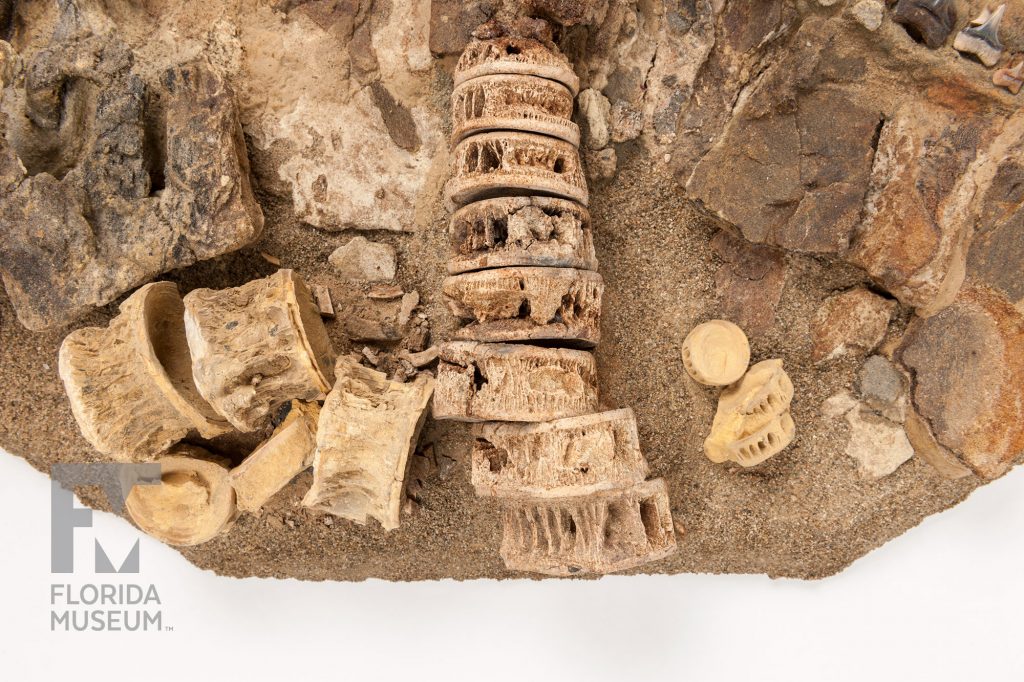Sharks have skeletons made of cartilage, which rarely preserves in the fossil record. Gordon Hubbell has perhaps the world’s largest and best-preserved collection of rare shark jaws and teeth, including the only complete fossilized skull of a Great White Shark.
Summary
Ancient Great White Shark (Carcharodon hubbelli) from Peru
Lived ~5 million years ago
Gift of Gordon and Kate Hubbell
Collection
Story
So fossil sharks don’t usually preserve except for their teeth and usually the teeth are found isolated. In this particular specimen found by Dr. Hubbell in the Peruvian desert, the entire skull and jaws and the cartilage were preserved somehow — we’re not quite exactly sure — and it preserves the entire tooth row of this ancestral Great White shark. It’s like the best specimen of its kind in the entire world.
Dr. Hubbell found this particular specimen in the 1980s and about 10 years ago we decided to go back to try to relocate the locality in the middle of nowhere in the desert of southern Peru and we had “X-marked-the-spot” on a topographic map. We spent a couple of days and finally we actually found the place. We found the hole in the ground from 30 years before and it still had plaster and a few more teeth.
Bruce MacFadden
Curator, Vertebrate Paleontology*
Distinguished Professor
Florida Museum of Natural History
Additional Information
Read: New ancient shark species gives insight into origin of great white
Exhibit
On display Sept. 23, 2017-Jan. 7, 2018, Rare, Beautiful & Fascinating: 100 Years @FloridaMuseum celebrated the Museum’s rich history. Each Museum collection was asked to contribute its most interesting items and share the stories that make them special. Though the physical exhibit is closed, this companion website remains online, providing an opportunity to experience the Florida Museum’s most treasured specimens.
Exhibit Area: Faces of the Museum
Theme: Generous Gifts
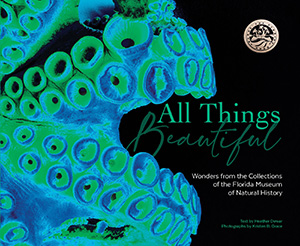 Want to see more? Explore more than 300 breathtaking color photos of plants, animals, fossils and cultural heritage materials from the Florida Museum of Natural History’s collections in the award-winning book All Things Beautiful available from the University Press of Florida.
Want to see more? Explore more than 300 breathtaking color photos of plants, animals, fossils and cultural heritage materials from the Florida Museum of Natural History’s collections in the award-winning book All Things Beautiful available from the University Press of Florida.
*This title was accurate at the time the exhibit was on display in 2017. Please visit the collection website to verify current staff and student information.
